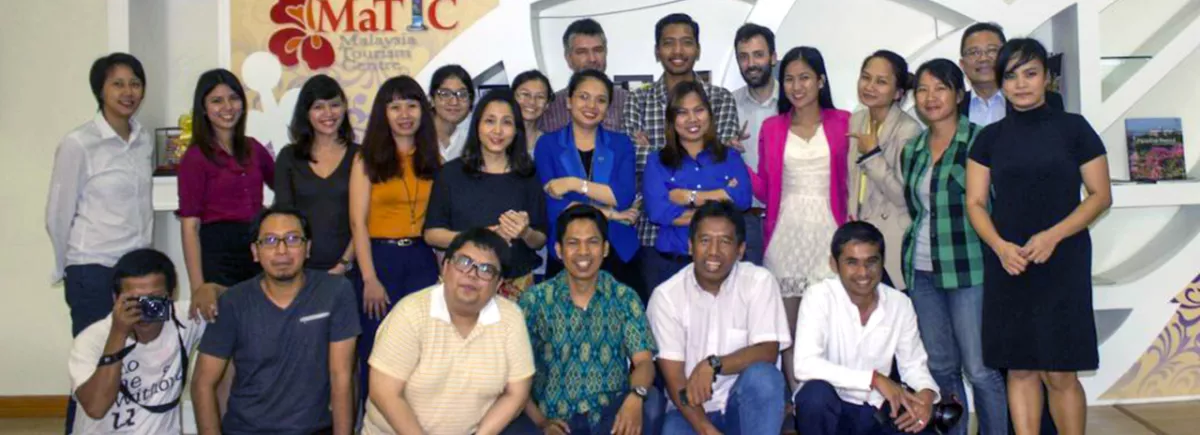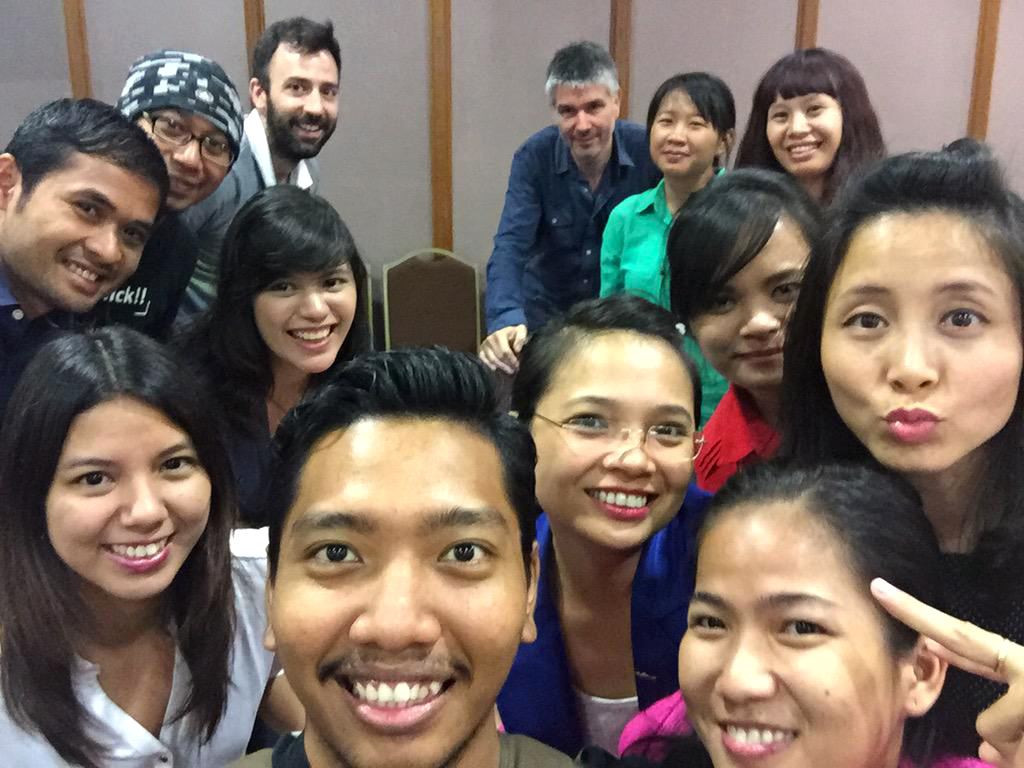
Journalism and climate change: the Médias 21 project award winners
Related project
Media 21, journalism and climate changeAfter a call for applications CFI has chosen those who are to take part in Médias 21. Attendees will receive training in how to cover climate-change issues and investigative pieces on local initiatives in this area, ahead of the COP21 conference in December 2015.
The COP21 conference will take place a few months later in Paris, and will be a time of reckoning in terms of what is to be done concerning climate change, culminating in a new universal climate agreement. This agreement must go hand in hand with a raising of awareness on the part of populations and their governments so that climate-change challenges can be optimally addressed.
Nine media candidates from South East Asia were selected on the basis of their editorial project and investigation topics
- INQUIRER.net (Philippines):
INQUIRER.net is the digital version of the Philippine Daily Inquirer, the leading newspaper in the Philippines. For its investigation, it intends to observe villages in the "typhoon belt", with a view to providing a response and contributing expertise and know-how for other localities in the archipelago which, in the past, were spared weather-driven disasters but are nowadays increasingly affected.
- Rappler (Philippines):
Rappler is one of the Philippines' principal digital newspapers. Its intention is to use ambitious multimedia reporting to spotlight the initiatives of rural communities making a living from traditional agriculture in the face of climate change.
- Philippines Environews (Philippines):
Philippines Environews is supported by the Association of Environmental Journalists and has a website addressing environmental issues. Its aim is to offer diverse, innovative responses for the various communities facing climate change in order that each locality is in a position to tackle problems independently.
- Suara.com (Indonesia):
Suara.com is an emerging online medium that is already popular in Indonesia and wishes to study the very significant level of deforestation in the country and the way in which forest-dwelling communities are adapting to it.
- BaleBengong.net (Indonesia):
BaleBengong.net is a citizen-medium, based in Bali, which is managed as a collective and open to contributions. Its investigative project relates to the impact of climate change on the ecosystem of dragonflies and damselflies, insects indicative of environmental quality.
- News Centre of Vietnam national Television – VTV24 et VTV2 (Viet Nam):
VTV is the principal televisual broadcaster in Vietnam. The VTV2 and VTV24 channels will be taking part jointly in Médias 21. Their project aims to understand the causes of mangrove degradation in the Mekong Delta and its consequences for the delta's populations and ecosystems.
- VN Express (Vietnam):
VN Express is a digital newspaper launched for the first time as part of an environmental project. Its focus is the Red River Delta in the north of Vietnam and it aims to set up a forum for the exchange of new crop-cultivation methods, addressing the increase in soil salinity and major weather events.
- Bangkok Post (Thaïlande):
The Bangkok Post is Thailand's most long-standing and most important daily. The newspaper's intention is to investigate the government's development policy, particularly in relation to fossil fuels, separately from environmental issues.
- CTN (Cambodia):
CTN is Cambodia's premier televisual channel. This medium aims to investigate the environmental impact of major industry in Cambodia and to monitor the measures that the government intends to implement.
The editors-in-chief and journalists of these 9 media met in Kuala Lumpur (Malaysia) from 24 to 29 May at an initial training session.
In the case of Africa, 8 journalists and bloggers from Kenya, Tanzania and Madagascar were selected
- Dotto Paul Kahindi (blogger,Tanzania):
Dotto is a blogger and founder of the Tabianchiblog website, a web platform entirely in Kiswahili devoted to environmental issues, which has already garnered around 300 000 visitors. His aim is to publicise at local level decisions and policies adopted on climate at major climate summits and conferences. He also intends to address the harmful effects of climate change in Tanzania and to turn the spotlight on adaptive initiatives already set up.
- Sophia WAMBUI MBUGUA (independent journalist, Kenya):
Sophia's investigative survey will look at government-implemented funding projects for climate issues in rural communities in Isiolo county: overview and exchange of experiences of local communities concerning the real impact of these initiatives in terms of greenhouse-gas-emission reduction, social impact and food security.
- Maureen ODIWUOR (journalist, The Standard, Kenya):
Maureen intends to publish reports on new "smart" agricultural methods by offering an exchange of experiences of Kenyan farmers in the north and east of the country. She will also focus on the conservation and preservation of Kenya's coastal coral reefs and how climate change has had a major impact on those reefs and on the way of life of fishing communities. The Standard is one of Kenya's premier dailies.
- Eunice KILONZO (journalist, The Daily Nation, Kenya):
Eunice works for the Daily Nation, Kenya's principal daily and rival to The Standard. Her aim is to investigate the way in which climate change affects the social and environmental determinants of health in various regions of Kenya: clean air, drinking water, food, and housing security.
- Rivonala RAZAFISON (journalist, Scidev.net, Madagascar):
Rivonala is a blogger and contributor of many years' standing to the Scidev.net website, which focuses on science and development and, through an investigative survey, will concentrate on carbon-offsetting mechanisms and, in particular, the REDD+ project, its impact, and how it is understood by local Malagasy communities.
- Andrew CHALE ( journalist and blogger for Modewji blog, Tanzania):
Andrew will focus on the effects of climate change on daily life in Tanzania's rural communities and the resilience of these vulnerable groups. The aim is to highlight adaptative solutions developed at local level and primarily the evolution towards new revenue-generating activities.
- Lalatiana RAHARINIAINA (blogger, Madagascar):
A blogger and citizen-journalist, Lalatiana wants to examine Malagasy citizens' perceptions of climate change and to gain information on positive and adaptive initiatives at local level: how communities begin to modify their way of life, and what citizens themselves are able to do to raise awareness.
- Koloina RAMASINANDRO (blogger, Madagascar):
Koloina is a member of the dynamic network of Malagasy bloggers known as HABAKA Innovation Hub. Her investigations will relate to the climate change challenges facing Malagasy agriculture. Koloina will also publish articles on Madagascar's position in international negotiations on climate ahead of COP21.
Everyone will gather at
UNESCO's regional office in Nairobi from 1 to 11 June for an initial training session devoted to web writing on subjects linked to climate change.

The media have an essential role to play in assisting this awareness-raising and in promoting the adoption of objectives by the greatest number. Launched in early 2015, Médias 21 has two main focuses. The first is to consolidate media journalists' skills in Africa and South East Asia in covering issues relating to climate change in their regions. The second foresees training journalists from these two regions in understanding the purpose of COP21: to encourage tailored, balanced coverage, highlighting political, societal and environmental issues raised by the various negotiation sessions, and their consequences at national level.
This project, which also has a "radio" aspect for Africa, began in late April in Madagascar in the form of a two-week training course on the design and production of radio broadcasts in connection with climate-change issues and involving 10 journalists from local Malagasy radio stations.
The Médias 21 project is supported by UNESCO and French embassies in the beneficiary countries.


